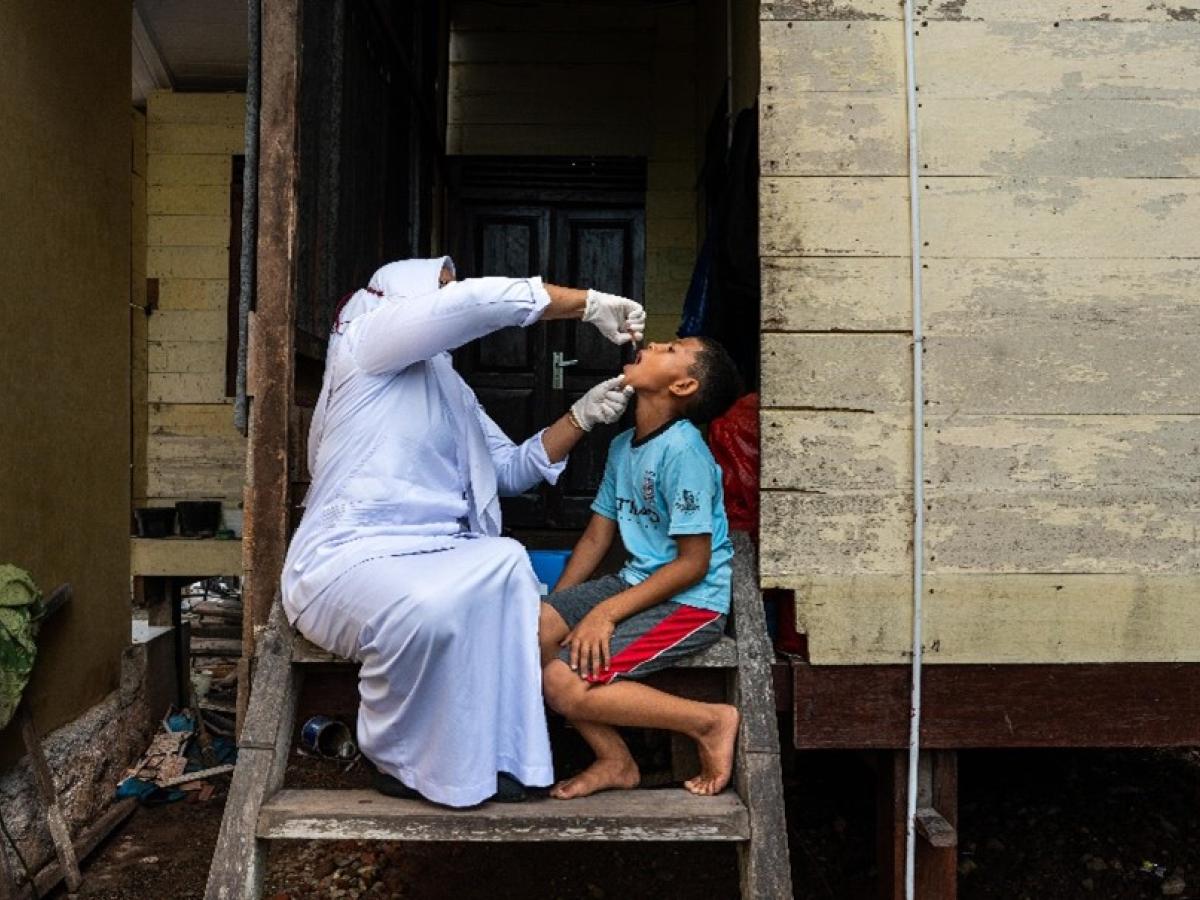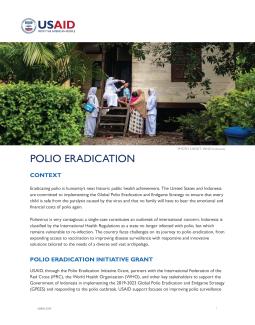Context
Eradicating polio is humanity’s next historic public health achievement. The United States and Indonesia are committed to implementing the Global Polio Eradication and Endgame Strategy to ensure that every child is safe from the paralysis caused by the virus and that no family will have to bear the emotional and financial costs of polio again.
Poliovirus is very contagious; a single case constitutes an outbreak of international concern. Indonesia is classified by the International Health Regulations as a state no longer infected with polio, but which remains vulnerable to re-infection. The country faces challenges on its journey to polio eradication, from expanding access to vaccination to improving disease surveillance with responsive and innovative solutions tailored to the needs of a diverse and vast archipelago.
Polio Eradication Initiative Grant
USAID, through the Polio Eradication Initiative Grant, partners with the International Federation of the Red Cross (IFRC), the World Health Organization (WHO), and other key stakeholders to support the Government of Indonesia in implementing the 2019-2023 Global Polio Eradication and Endgame Strategy (GPEES) and responding to the polio outbreak. USAID support focuses on improving polio surveillance and a phased switch from oral polio vaccines (OPV) to inactivated polio vaccines (IPV). OPV can unintentionally transmit polio since the active ingredient is weakened poliovirus, so the switch is a critical step in the GPEES. IPV vaccination coverage had been slowly improving nationally, but dropped significantly due to COVID-19; pockets of low coverage remain in remote areas and in some urban neighborhoods.
Results
USAID financial and technical support through IFRC and WHO assisted Indonesia by:
- Supporting the Ministry of Health (MOH) to implement two rounds of supplementary
immunization activities in Aceh in response to a polio outbreak; - Training more than 500 community volunteers in community-based surveillance and equipping them with the necessary knowledge and skills to identify children experiencing acute flaccid paralysis (AFP);
- Supporting the MOH to revitalize essential health programs during the COVID-19 pandemic, including through catch-up immunization, regular desk reviews for polio surveillance, and other forms of support;
- Mobilizing more than 150 community volunteers for continuous polio immunization campaigns including National Childhood Immunization Month and Outbreak Response Immunization in Aceh, particularly in Banda Aceh city and Bireuen district, resulting in 3,730 children receiving life-saving polio vaccinations;
- Supporting the MoH to conduct a robust surveillance network comprising around 10,000 (public and private) reporting sites and supporting the investigation of more than 2,700 AFP cases, and testing around 4,484 stool specimens annually;
- Initiating a local government partnership with the Banda Aceh branch of the Indonesian Red Cross (PMI) to enhance the commitment of all parties involved in supporting the National Polio Eradication Program;
- Supporting the MoH to conduct biweekly desk reviews of vaccine preventable diseases in 100 priority districts;
- Carrying out planning, surveillance, testing, and community action/outreach services for the ongoing routine immunization program; and
- Addressing key challenges in the immunization system, working to improve surveillance for vaccine preventable diseases, and providing routine immunization.
Contact
Desy Sagala, USAID at dsagala@usaid.gov
Olivi Silalahi, WHO at silalahio@who.int


